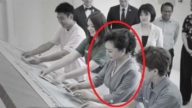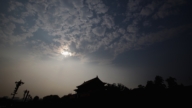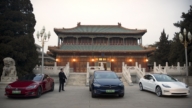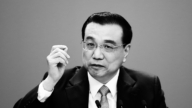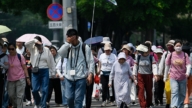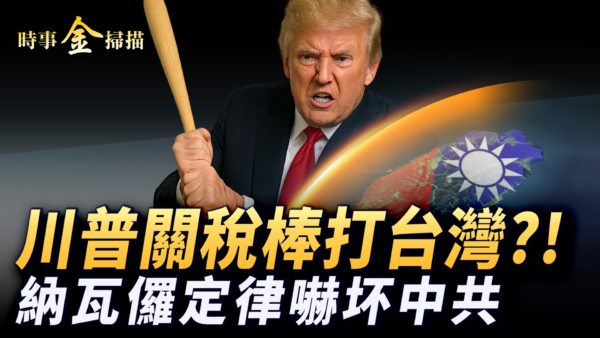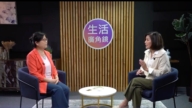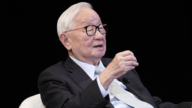【新唐人2012年11月13日讯】胡锦涛在十八大提出报告表示,要实施“党代会代表提案制”,《新华网》11号说,这是党的代表大会制度的又一项重大完善措施,并说这将会促进党内民主。不过评论人士认为,“党代会代表提案制”难保不像“人大代表建议”一样流于形式,而普通党员连言论和公平竞选的权利都得不到保证,党内民主还很遥远。
十八大报告中提出,今后党代会代表对党的大政方针等,都可以以制度化方式提出意见和建议。《新华网》11号声称,这是中共首次正式做出的涉及“党内民主机制”的重要决定。不过民间对于《新华社》热情赞扬的这项所谓“党代会代表提案制”,反应并不热情。
财经作者段育文发表微博分析:“党代会代表提案制”看上去很美,但是第一、如果只是搞提案,没有决策权的话,或者决策权在主席团里面,就不免流于形式;第二、现有制度下党代会五年一次,也就是五年才能提案,还不如两年一次的人代会制度;第三、“党代会代表提案制”只适用于党内民主,而党员人数相对13亿人口局限性太大。
独立评论员李善鉴认为,“党代会代表提案制”只是形式上的东西,没有任何的实质意义。
李善鉴:“因为讲民主,实际上就是说让多数人参与决策,然后对权力有一个制约。可是,它这整个报导里提的这个事情,无非就是说你提案,也就是说你可以提一些建议,具体做不做,具体怎么做,这个你没有任何权力。”
国内观察人士认为,在现行机制下,缺乏监督和管理,“党代会代表提案制”很可能重蹈“人大代表建议”和“政协委员提案”的覆辙,只能提出却很难落实。
山东大学退休教授孙文广:“这些议案…我以前当过政协委员,也写过不少,它就是一种形式的,做一个表面的样子。你写了以后,他也不公开,放在上面就算了,实际问题解决不了。”
除了对“党代会代表提案制”本身的质疑,民间还有声音质疑那些能够获得提案权的“党代表”,能否传递基层的真实声音﹖
孙文广:“这个‘党代表’怎么选是个大问题,现在是指定的是上面组织部定好的,然后拿一个名单,你们去选去吧,这是骗人的了。”
十八大提出实行“党代会代表提案制”,继续十七大高唱“党内民主”的调子,不过观察人士指出,连温家宝提政改都遭封杀,党内民主缺乏最基本的前提。
孙文广:“一个前提就是表达的自由权利。你是不是让人讲话,讲了以后是不是可以在媒体上传播。第二个,就要开展公开、公平的竞选。党内的民主如果这两点要有的话,就有希望了。但是现在的情况还是看不到。”
“党内民主”是胡锦涛在十七大报告中五次提到的“关键词”。不过之后五年中,除了基层党组织的“公推直选”试验,被大陆媒体视为革新而大量报导,而民主监督产生党代表和干部的方式,却迟迟无法涉及到中共体制的中高层。 另外,“党代表常任制”的试验也徘徊不前。
李善鉴:“ 从这些决定来看的话,和其它有关十八大的报导,我们可以清楚的看到,实际上它没有任何实质的变化。那表面上的幌子肯定要有,讲的冠冕堂皇。”
在薄熙来事件牵引出的无数内斗和贪腐黑幕的冲击下,今年十八大如履薄冰的召开。官方一面在《新华社》等媒体上高调赞扬十八大,一面严格监控和隔离异议人士和维权民众,对藏人的自焚抗议也采取回避态度。
采访/田净 编辑/尚燕 后制/萧宇
New “Party Congress Proposal System" Looks Good on the Surface
Chinese president Hu Jintao gave a speech during the
18th Chinese Communist Party (CCP) Congress.
He said the CCP needs to implement a
“Party Congress Proposal System."
Xinhua.net said on Nov. 11 that this is significant progress
for the party’s congress system, which will promote democracy within the party.
But commentators say it is difficult for this “Party Congress
Proposal System” to be different from the current Party Congress system, which is a mere formality.
Ordinary party members don’t even have
freedom of speech and fair election.
“Inner-Party Democracy” is still very distant.
The 18th CCP Congress report mentioned that
party representatives will be able to raise comments
and suggestions on party policies in the future.
On Nov 11 Xinhua.net claimed this as the first of CCP
decisions regarding “inner-party democracy mechanisms.”
But people are not enthusiastic about this so-called
“Party Congress Proposal System.”
Finance writer, Duan Yuwen analyzed on his micro blog:
this “Party Congress Proposal System" is nice sounding.
However, if it is only about making proposals,
there is no decision-making power; so it is just a formality.
Secondly, the party congress is being held every five years,
that means proposals can be done only once in five years.
Third, the proposal is limited to democracy for people
within the party,
yet the number of party members is small
when compared to China’s population (1.3 billion).
Independent commentator Li Shanjian thinks the “Party
Congress Proposal System" is a formality, it has no substance.
Li Shanjian: “Democracy’s purpose is to have more people
participate, so as to limit those in power.
What has been reported is only about making proposals.
As to whether those suggestions are carried out or not,
people do not have the right to make the decisions.
Observers in China think the current system
lacks monitoring and management.
The “Party Congress Proposal System" might be the same
as the “National People’s Congress Proposals” or
the “Committee of CPPCC Proposals,”
where implementing them is difficult.
Shandong University retired Professor, Sun Wenguang:
“I was once member of the Committee of CPPCC.
I have written many of these, which was a mere formality.
Whatever I wrote was not published, nor resolved.”
In addition to questioning the proposal system, people also
question whether those representatives pass on messages from the grass-roots level.
Sun Wenguang: “How were those party
representatives elected? Now they are nominated.
Candidates were pre-determined by those above since people
are given a name list to vote for. It‘s all for show.”
The “Party Congress Proposal System” of the 18th Congress
is a continuation of the “Inner-Party Democracy” policy raised during the 17th Congress.
Observers pointed out even Premier Wen Jiabao’s
proposal for reform was obstructed.
Sun Wenguang: “One premise is freedom of expression,
that is, whether someone can say things against others
and be published via the media.
Secondly, fair election needs to be implemented.
If democracy within the CCP includes these two,
then there is hope; but now, we cannot see it.”
“Inner-Party Democracy" was mentioned five times
during Hu Jintao’s speech at the 17th Congress.
But after five years, except for the widely reported
“Direct Election” experiment in grassroots party organizations,
democratic election oversight of party representatives and
cadres cannot reach the CCP’s high-level officials.
Li Shanjian: “From these decisions
and other news of the 18th Congress,
we can clearly see there is no fundamental change.
They only want to cover-up the surface.”
Under the impact of internal struggles,
and corruption revealed by the Bo Xilai scandal, the 18th Congress was walking on thin ice.
On one side, official media highly praise the 18th Congress;
on the other hand, dissidents and human rights defenders are
strictly monitored.
The government also has been evasive toward
Tibetan self-immolation protests.


